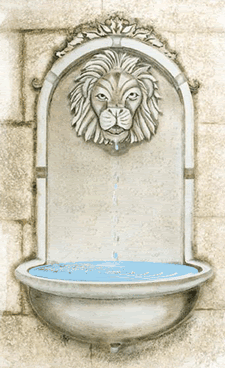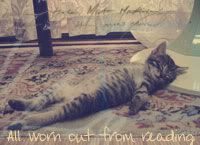The Turn of the Tide

Were the fields; hard as granite the clods;
Hedges stiff with ice; the sedge in the vice
Of the pool, like pointed iron rods.
And the deathly stillness spread from Bethlehem. It was shed
Wider each moment on the land;
Through rampart and wall into camp and into hall
Stole the hush; all tongues were at a stand.
At the Procurator's feast the jocular freedman ceased
His story, and gaped. All were glum
Travellers at their beer in a tavern turned to hear
The landlord; their oracle was dumb.
But the silence flowed forth to the islands and the North
And smoothed the unquiet river bars
And levelled out the waves from their revelling and paved
The sea with cold reflected stars.
Where the Caesar on Palatine sat at ease to sign,
Without anger, signatures of death,
There stole into his room and on his soul a gloom,
And his pen faltered, and his breath.
Then to Carthage and the Gauls, past Parthia and the Falls
Of Nile and Mount Amara it crept;
The romp and war of beast in swamp and jungle ceased,
The forest grew still as though it slept.
So it ran about the girth of the planet. From the Earth
A signal, a warning, went out
And away behind the air. Her neighbours were aware
Of change. They were troubled with a doubt.
Salamanders in the Sun that brandish as they run
Tails like the Americas in size
Were stunned by it and dazed; wondering, they gazed
Up at Earth, misgiving in their eyes.
In Houses and Signs Ousiarchs divine
Grew pale and questioned what it meant;
Great Galactal lords stood back to back with swords
Half-drawn, awaiting the event,
And a whisper among them passed, 'Is this perhaps the last
Of our story and the glories of our crown?
--The entropy worked out?--The central redoubt
Abandoned? The world-spring running down?
Then they could speak no more. Weakness overbore
Even them. They were as flies in a web,
In their lethargy stone-dumb. The death had almost come;
The tide lay motionless at ebb.
...to be continued tomorrow! ~Arevanye
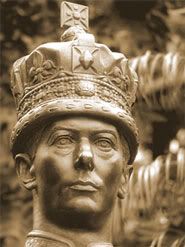 For a second they thought the room was full of people - hundreds of people, all seated, and all perfectly still. Polly and Digory, as you may guess, stood perfectly still themselves for a good long time, looking in. But presently they decided that what they were looking at could not be real people. There was not a movement nor the sound of a breath among them all. They were like the most wonderful waxworks you ever saw.
For a second they thought the room was full of people - hundreds of people, all seated, and all perfectly still. Polly and Digory, as you may guess, stood perfectly still themselves for a good long time, looking in. But presently they decided that what they were looking at could not be real people. There was not a movement nor the sound of a breath among them all. They were like the most wonderful waxworks you ever saw.
 Now, or soon now, if all is well, come the majestic
Now, or soon now, if all is well, come the majestic The first and most obvious advantage is that you thus induce him to enthrone at the centre of his life a good, solid resounding lie. I don't mean merely that his statement is false in fact, that he is no more equal to everyone he meets in kindness, honesty, and good sense than in height or waist-measurement. I mean that he does not believe it himself. No man who says I'm as good as you believes it. He would not say it if he did. The St. Bernard never says it to the toy dog, nor the scholar to the dunce, nor the employable to the bum, nor the pretty woman to the plain. The claim to equality, outside the strictly political field, is made only by those who feel themselves to be in some way inferior. What it expresses is precisely the itching, smarting, writhing awareness of an inferiority which the patient refuses to accept.
The first and most obvious advantage is that you thus induce him to enthrone at the centre of his life a good, solid resounding lie. I don't mean merely that his statement is false in fact, that he is no more equal to everyone he meets in kindness, honesty, and good sense than in height or waist-measurement. I mean that he does not believe it himself. No man who says I'm as good as you believes it. He would not say it if he did. The St. Bernard never says it to the toy dog, nor the scholar to the dunce, nor the employable to the bum, nor the pretty woman to the plain. The claim to equality, outside the strictly political field, is made only by those who feel themselves to be in some way inferior. What it expresses is precisely the itching, smarting, writhing awareness of an inferiority which the patient refuses to accept.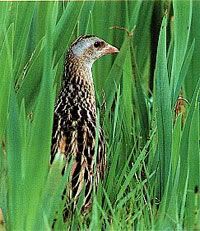 After dinner I read about half of the batch of [the new] Hobbit* which Tollers** sent me: how does he keep it up? The crossing of the marshes by Frodo, Sam and Gollum in particular is magnificent....After tea another walk...While I was hesitating in the wet grey twilight, a corncrake started up in a field of young wheat, and no nightingale could have ravished me as did its harsh song...As I plodded home in the rain, under weather conditions themselves extraordinarily reminiscent of old days, my mind was full of pictures evoked by the corncrake: particularly of smoking cigarettes with Jack on the top of the bow of the study window, reached by climbing out of our bedroom window. But while my thoughts are tender, I could not summon a single regret; at 52 I may be nearing the end of the race, but how infinitely preferable it is to be 52 rather than 16! It is astonishing to me that practically the whole weight of literature takes it as axiomatic that nothing can make up for the loss of youth; at least Lamb and Stevenson are the only two men I can think of at the moment who have anything to say on the other side. Meditating as I walked, I came to the conclusion that discontent and envy made the permanent background of my youth--envy, hopeless permanent envy of those who were good at games: of those with attractive manners: of those who got their clothes made in town and owned motor bykes: even of those who were good looking: and all coupled with that self consciousness which at 15 or 16 can be a perfect torment...
After dinner I read about half of the batch of [the new] Hobbit* which Tollers** sent me: how does he keep it up? The crossing of the marshes by Frodo, Sam and Gollum in particular is magnificent....After tea another walk...While I was hesitating in the wet grey twilight, a corncrake started up in a field of young wheat, and no nightingale could have ravished me as did its harsh song...As I plodded home in the rain, under weather conditions themselves extraordinarily reminiscent of old days, my mind was full of pictures evoked by the corncrake: particularly of smoking cigarettes with Jack on the top of the bow of the study window, reached by climbing out of our bedroom window. But while my thoughts are tender, I could not summon a single regret; at 52 I may be nearing the end of the race, but how infinitely preferable it is to be 52 rather than 16! It is astonishing to me that practically the whole weight of literature takes it as axiomatic that nothing can make up for the loss of youth; at least Lamb and Stevenson are the only two men I can think of at the moment who have anything to say on the other side. Meditating as I walked, I came to the conclusion that discontent and envy made the permanent background of my youth--envy, hopeless permanent envy of those who were good at games: of those with attractive manners: of those who got their clothes made in town and owned motor bykes: even of those who were good looking: and all coupled with that self consciousness which at 15 or 16 can be a perfect torment...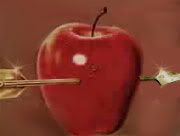


 Roland is dead, Cuchulain's crest is low,
Roland is dead, Cuchulain's crest is low,

 Affection has its own criteria. Its objects have to be familiar. We can sometimes point to the very day and hour when we fell in love or began a new friendship. I doubt if we ever catch Affection beginning. To become aware of it is to become aware that it has already been going on for some time. The use of "old" or vieux as a term of Affection is significant. The dog barks at strangers who have never done it any harm and wags its tail for old acquaintances even if they never did it a good turn. The child will love a crusty old gardener who has hardly ever taken any notice of it and shrink from the visitor who is making every attempt to win its regard. But it must be an old gardener, one who has "always" been there--the short but seemingly immemorial "always" of childhood.
Affection has its own criteria. Its objects have to be familiar. We can sometimes point to the very day and hour when we fell in love or began a new friendship. I doubt if we ever catch Affection beginning. To become aware of it is to become aware that it has already been going on for some time. The use of "old" or vieux as a term of Affection is significant. The dog barks at strangers who have never done it any harm and wags its tail for old acquaintances even if they never did it a good turn. The child will love a crusty old gardener who has hardly ever taken any notice of it and shrink from the visitor who is making every attempt to win its regard. But it must be an old gardener, one who has "always" been there--the short but seemingly immemorial "always" of childhood.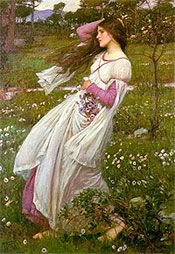 The wind got wilder and wilder. It seemed to be lifting me off the ground so that, if it hadn't been for the iron round my waist, I'd have been blown right away, up in the air. And then--at last--for a moment--I saw him."
The wind got wilder and wilder. It seemed to be lifting me off the ground so that, if it hadn't been for the iron round my waist, I'd have been blown right away, up in the air. And then--at last--for a moment--I saw him." Our move to "Hillsboro" was carried out according to plan: but our friend Tolley (whom we had to turn off) had left so much undone and so much to undo that we had to put off the arrival of the furniture for a fortnight. The interval of "camping"--helped by a spell of delightful weather--was not so uncomfortable as I expected and we sat down so seldom that the scarcity of furniture, borrowed from Miss Featherstone, was hardly noticed. The garden was a great joy and there were some pleasant moments when we saw our chosen wall papers going up[...]
Our move to "Hillsboro" was carried out according to plan: but our friend Tolley (whom we had to turn off) had left so much undone and so much to undo that we had to put off the arrival of the furniture for a fortnight. The interval of "camping"--helped by a spell of delightful weather--was not so uncomfortable as I expected and we sat down so seldom that the scarcity of furniture, borrowed from Miss Featherstone, was hardly noticed. The garden was a great joy and there were some pleasant moments when we saw our chosen wall papers going up[...]
